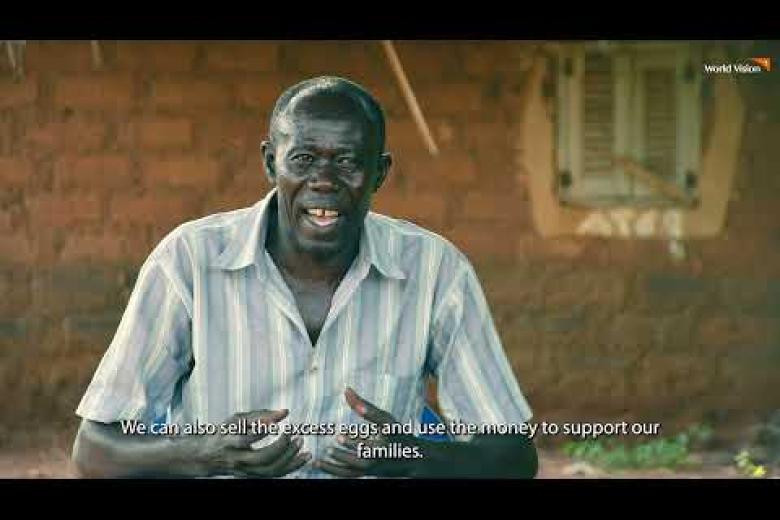Collaborating to improve nutrition through biofortified crops in Ghana
As part of activities to strengthen feeding practices within the framework of an agriculture and nutrition project focused on children's first 1,000 days (targeting 4,900 children and 5,520 women across the Kintampo South, Kaseena Nanakana and Sekyere districts), World Vision is partnering with Ghana's Ministry of Agriculture to build the capacity of farmers in the production of orange flesh sweet potato –a biofortified crop rich in micronutrients essential for the growth and development of children under two years.
One component of the project is to ensure the improvement of household-level agriculture by organising training programmes for 1,050 farmers to equip them with knowledge in the preparation of land, acquisition of planting materials, and also help with the supervision of agricultural activities such as lifting of vines, pest and disease control among others.
The purpose of choosing the orange flesh sweet potato crop for the project is to address micronutrient deficiencies in children that lead to negative nutritional and health outcomes, including increased susceptibility to infectious diseases, poor physical growth and diminished cognitive development. Informed by research, the project addresses the most common and preventable global micronutrient gaps between physiological needs and intake in populations that depend on staple food crops for nourishment and have limited or no access to alternative sources of micronutrients (including fortified foods, supplements or more diverse diets).
To tackle the issue of market access, World Vision is collaborating with the District Agriculture office (spearheaded by the department of crops) on building a demonstration farm. The farm will serve as a place for farmers to implement the farming methods they learn from the training.
The project seeks to extensively train poultry farmers and equip them for better rearing. As part of this intervention, World Vision will be distributing twenty birds to each farmer, providing structures for the rearing of birds, vaccinations for the birds in the case of disease outbreak, and supply zinc sheets and feed to facilitate the production of eggs to be given to children for improved nutrition. The training will cover education on how to properly rear birds according to best practice, for economic purposes and family nourishment.
